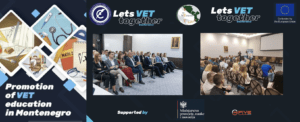
Lets VET together
Lets VET together May 28, 2024| Podgorica, Montenegro The “Let’s VET Together” Conference was held on May 28, 2024, at the Hilton Hotel in Podgorica,
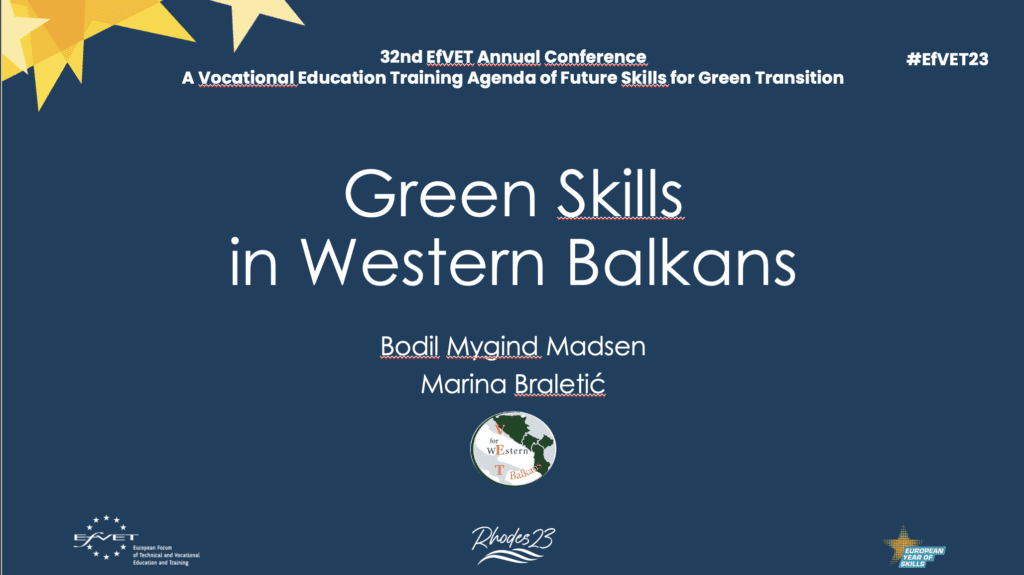
This year’s EfVET conference was held in Rhodes, Greece. The topic was Future Skills for Green Transition and a record of 345 participants attended! In addition to having the privilege of having a workshop on the topic of Green skills in WB, we participated in many other activities such as round tables, marketplace and similar.
Of exceptional importance was the participation of representatives of the Western Balkans in order to raise awareness of the importance of their involvement in professional education projects.
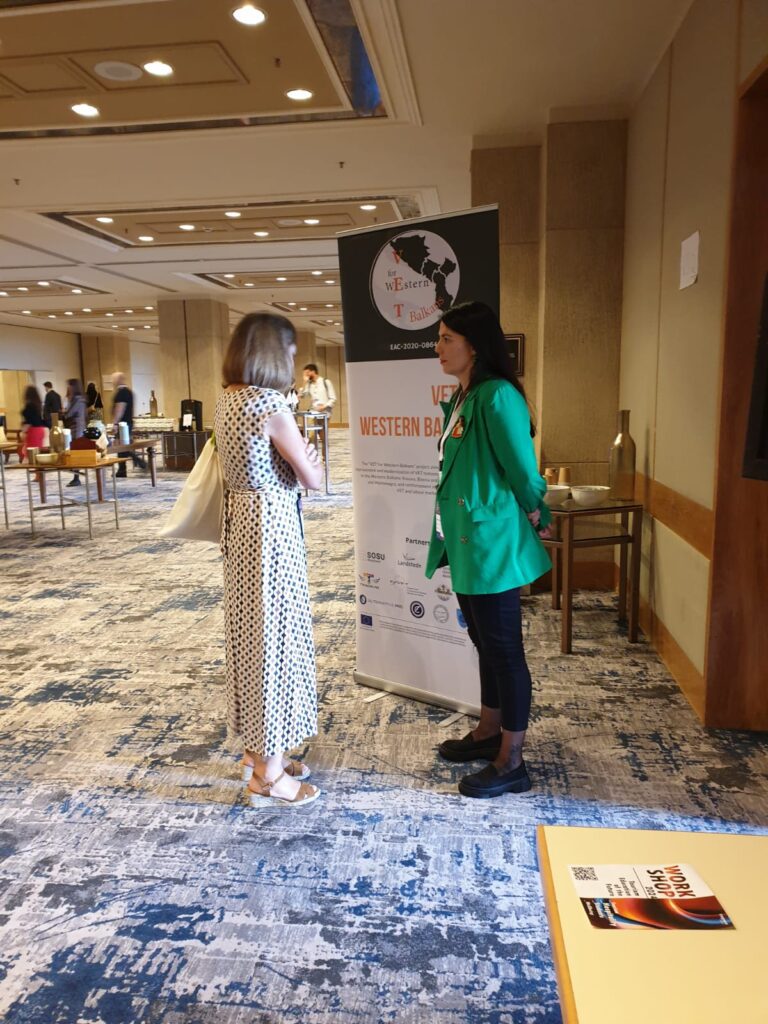
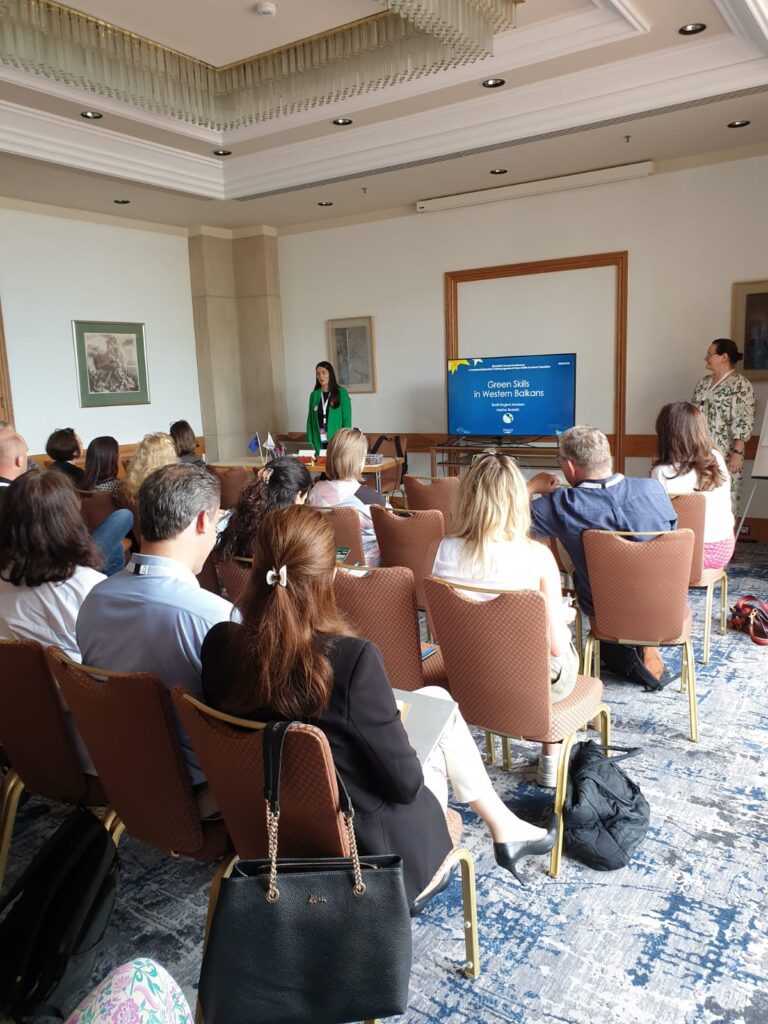
In the workshop “Green Skills in Western Balkans”, 32 enthusiastic people from 13 different countries took part. After welcoming and distributing small presents (chocolate from Montenegro and Denmark, notebooks made from recycled paper) the two workshop moderators presented the project “VET for Western Balkan” It is a project funded by the EU Commission, aiming at modernizing the VET educations in Western Balkans and with a partnership consisting of 6 VET organisations from EU countries and 6 from Western Balkan countries. They also showed examples of green practices from some of the EU partner schools.
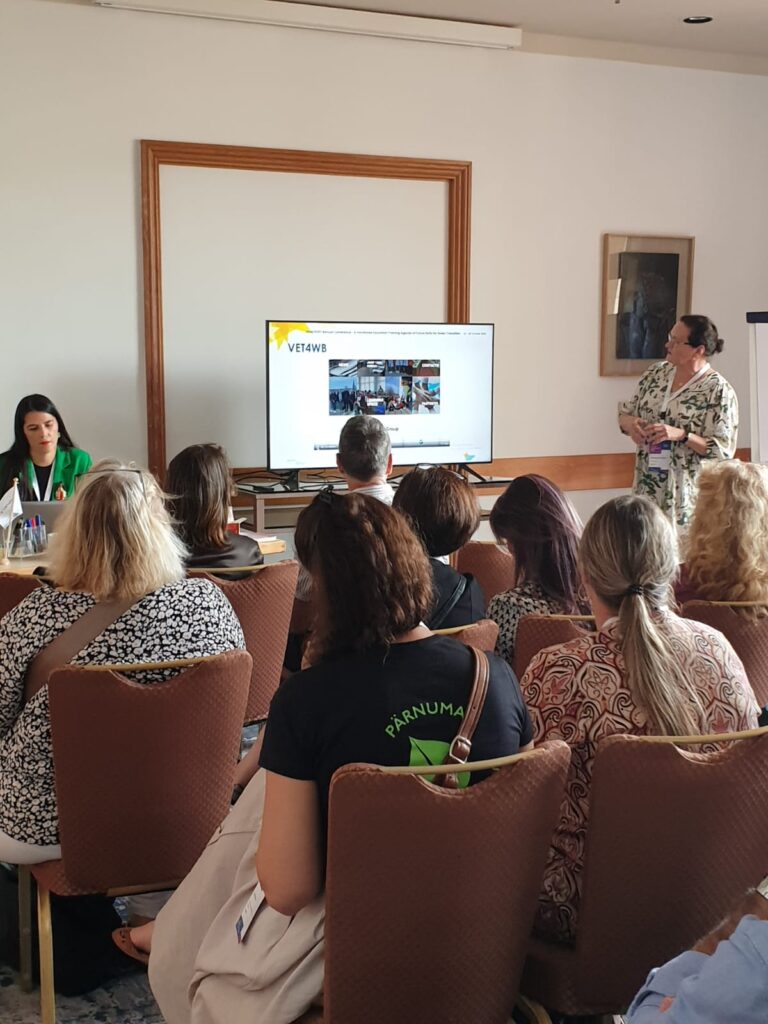
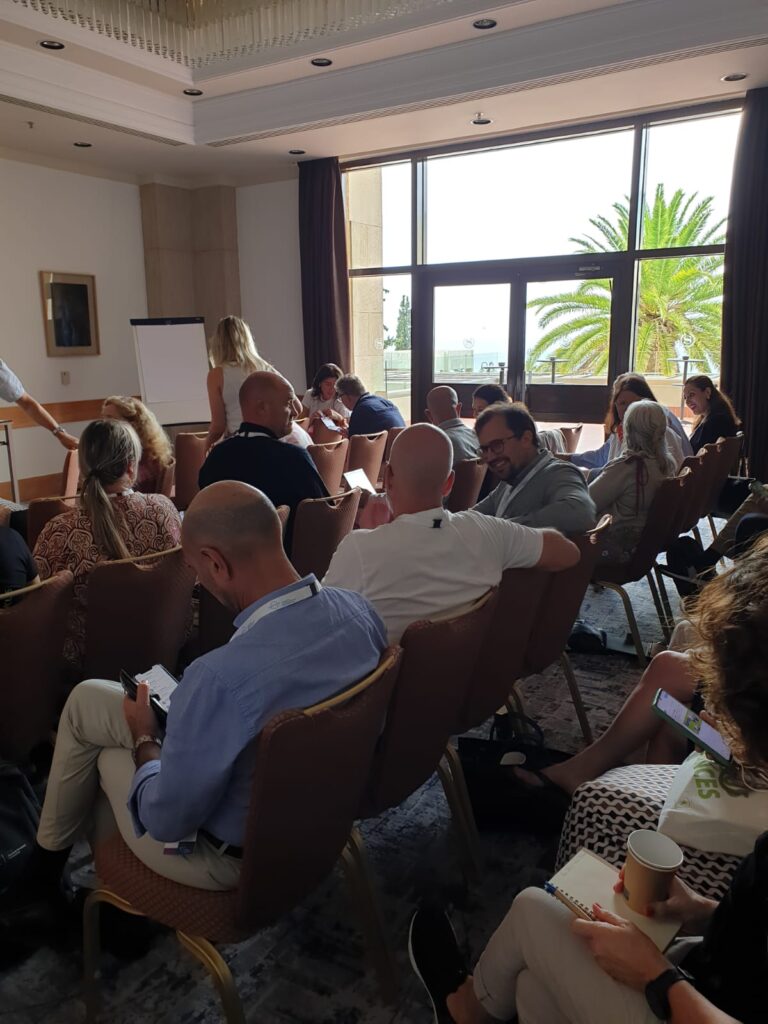
The participants then worked in pairs with the person sitting next to them for 10 minutes to exchange examples of green practices from their own schools, and three of the pairs presented their examples to the whole group:
Participants from the Netherlands gave an example from their school, where they are implementing a “cycling campaign”, so that teachers use bicycles for transportation and not cars. They also give discounts for the fitness center in order to promote healthy lifestyles and an advantage is that the schools are usually close to the train station, so most students use the train for transportation and not the car.
A participant from Canada gave the example that they use solar stations to charge electric cars and have water fountains so that students and teachers fill their water bottles instead of buying plastic ones. He stated that they compost leftover food from the canteen, that they use geothermal energy for heating and cooling and he stated as important that they often conduct surveys among students and teachers about their mode of transportation, so that they can always work on improvement.
We had an example from Palermo where they don’t use plastic bags at all anymore, they are completely out of use.
In one of the Dutch schools, modules on sustainability were included in the curriculum as mandatory. Their building is completely eco, from recycled material and it can be reusable. It was pointed out that they have a sustainability coordinator whose job it is to conduct research on sustainability and work on its improvement.
Every year, a Bologna school organizes a big event attended by the local community, and this year’s theme was sustainability.
From Finland, we did not receive a concrete example of implementing green activities, they certainly have many of them, but we received a question for all of us: How as individuals (not only as teachers) can we contribute to spreading awareness about the importance of green transition, also outside of school, in everyday life? We all have to work together to change the mindset.
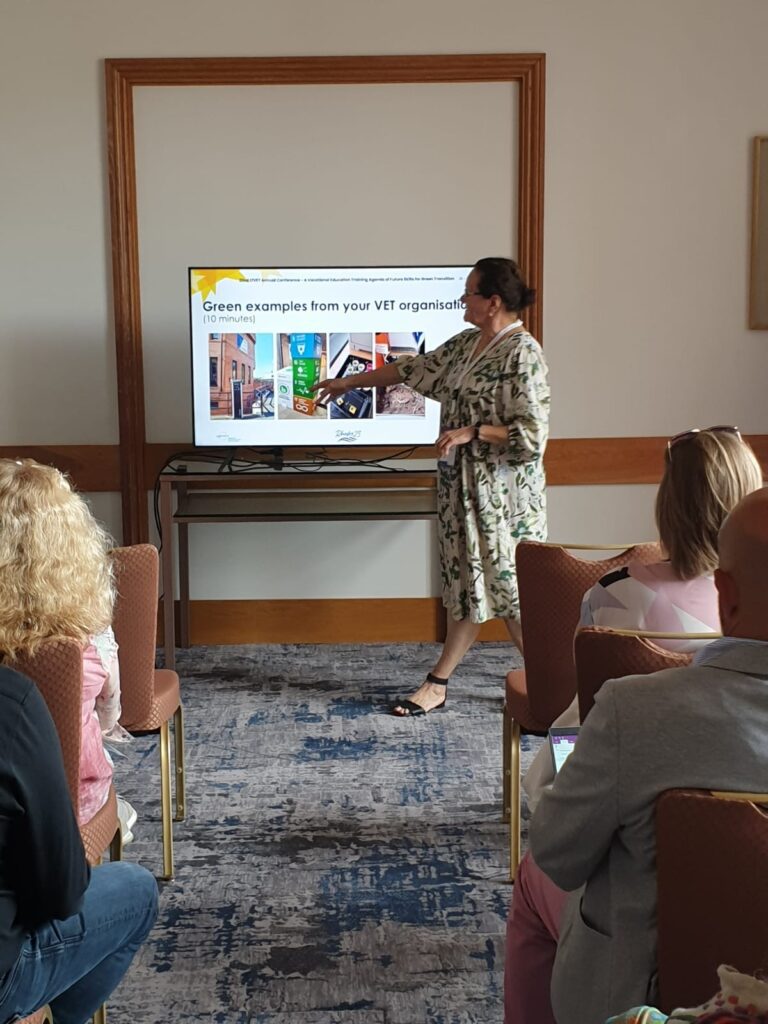
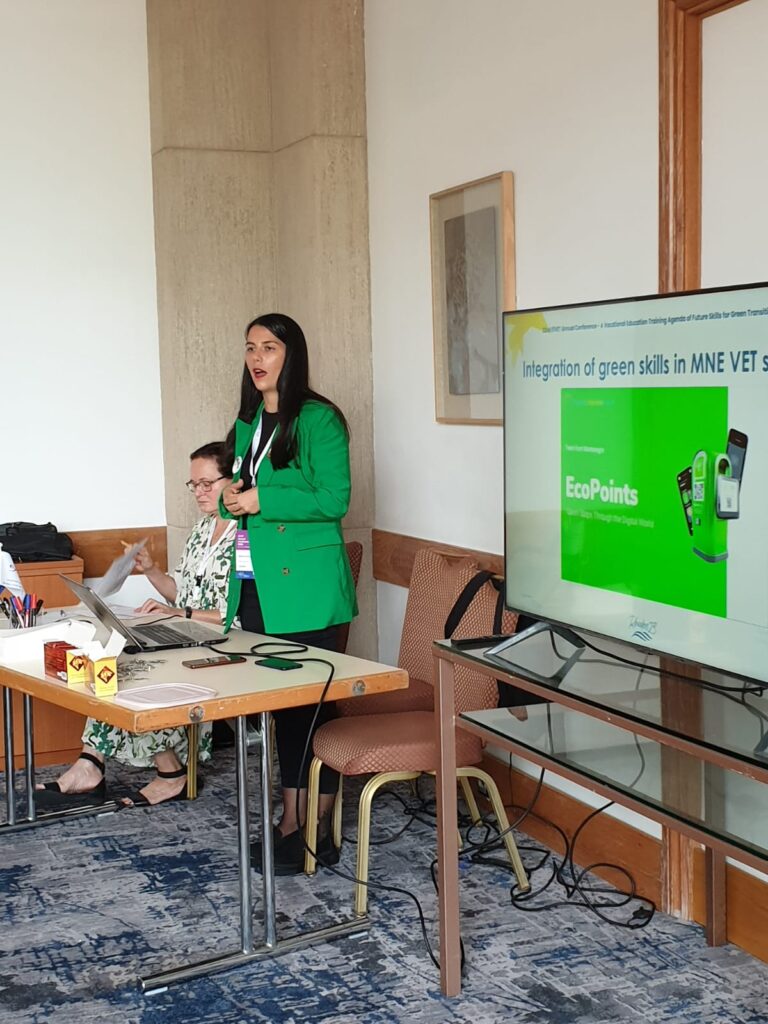
The awareness of the importance of protecting the environment is not very high in Western Balkan even though the climate changes and the problem with waste piling up at many places are obvious. This situation was illustrated by slides with photos from the Balkan countries – and the important role of the VET teachers to change this situation was pointed out.
However, there are also sunbeam stories from Western Balkans: One of them is the development of the EcoPoints application to be used for recycling of waste: The app has been developed by a group of students from the Montenegrin school “Vaso Aligrudić” from Podgorica and has won the first price at a competition in Balkathon 4.0 Sarajevo. The idea is that you toss the trash in a special container in the area. The app inside makes a QR code and shows it on a screen. Then you scan the QR code with your phone to see how many points you earned from that amount of trash. And then you can see a list of places where you can exchange the received points – for example for cinema tickets, discount in certain shops and cantinas, free gigabytes in telecommunication company etc.
From the waste, new benches for the school are produced by a local company. The students have calculated that if each student recycle just one bottle cap per day, the company can produce a new 3D bench every two weeks.
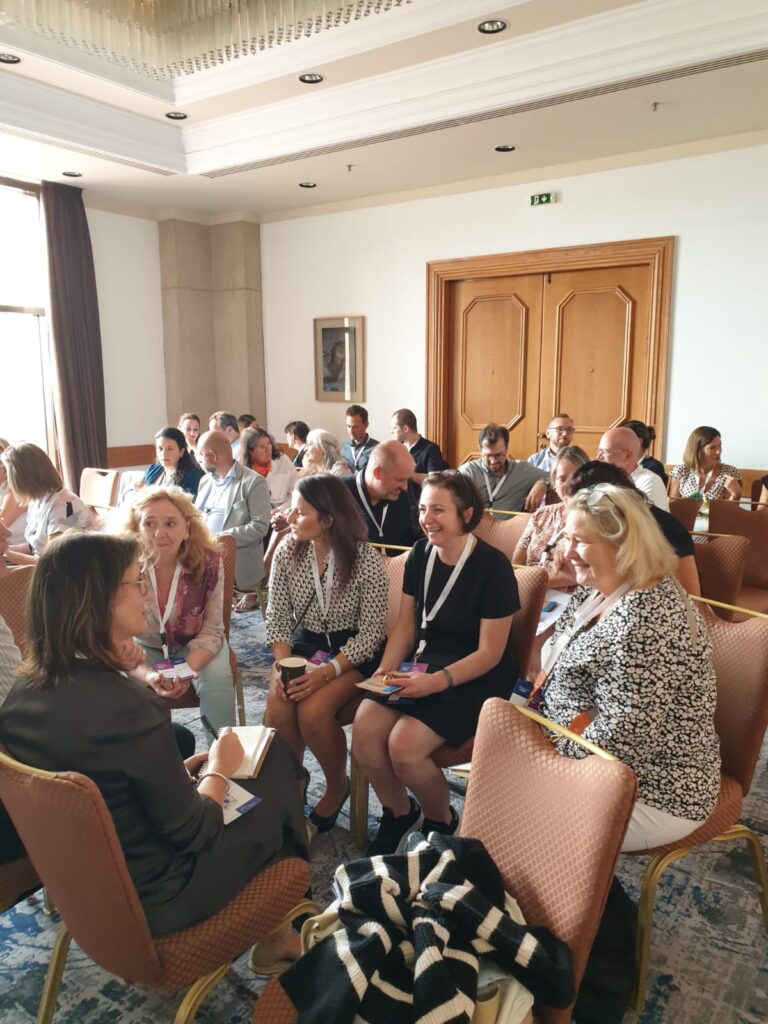
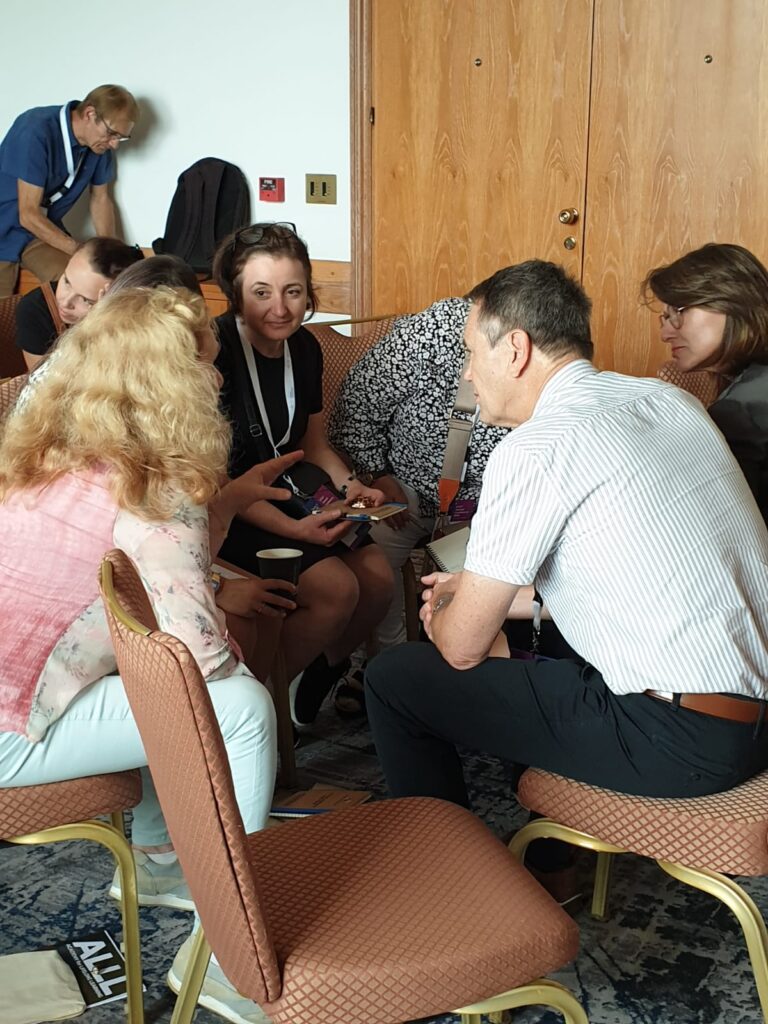
Followingly, the participants were divided in 6 group to work on this assignment:
Work in group: Questions for discussion:
The groups worked for 20 minutes and presented the results of their work.
The participants also had taken the time to introduce themselves to each other and to each other’s organization and to the situation in the different countries.
The overall opinion was that teachers are not sufficiently prepared for teaching green skills, also because they are not aware of the green elements they are already using. Open-mindedness and the ability to integrate new green skills and techniques into the classroom are essential for teachers.
In Slovenia for instance, the teachers are not prepared for teaching green skills, however the Slovenian government has started a project to prepare teachers for this task. In Denmark the sustainability issue is already present in the VET schools and there is an open-mindedness for new thing. The educational model emphasizes student autonomy and decision-making regarding sustainability and teachers and students work collaboratively to develop green skills and implement actions related to green awareness.
In Greece, the awareness is growing and also the awareness that the work starts with teachers and head of schools.Teachers in Greek secondary and VET schools have awareness of green skills, environmental protection and sustainability. The implementation of these concepts in the classroom varies among individual teachers and school administrators. While there is a policy from the Ministry of Education to include green skills lessons, teachers haven’t received specific training on this topic. They rely on self-learning and research to incorporate green skills into their teaching.
All groups agreed that teachers need to be in focus in every topic and in relation to every profession. The whole MINDSET is important.
Several of the participants of the workshop shared the opinion that many teachers actually are aware of the importance of green skills and that green skills in many cases are part of daily teaching life. They are aware of the impact of improved green skills on the environment and there is also a close cooperation with companies taking place in this field. We are also dealing with many paradoxes: for instance, we want more and more digitalization in our school but this requires more energy! It is sometimes difficult to find solutions but it is essential that the organisations – the VET schools – have a vision on this issue. Some schools have a policy – for instance that in the cantina, domestic, local ingredients should be used as much as possible and max. 20% of meals can have fish or meat. Some are for instance certified as Sustainable Development Schools, others are UNESCO schools.
Also, a big database should be developed for project managers on how projects can be implemented in a green way, for instance when organizing meetings and disseminating. That is a good way to integrate green skills in projects.
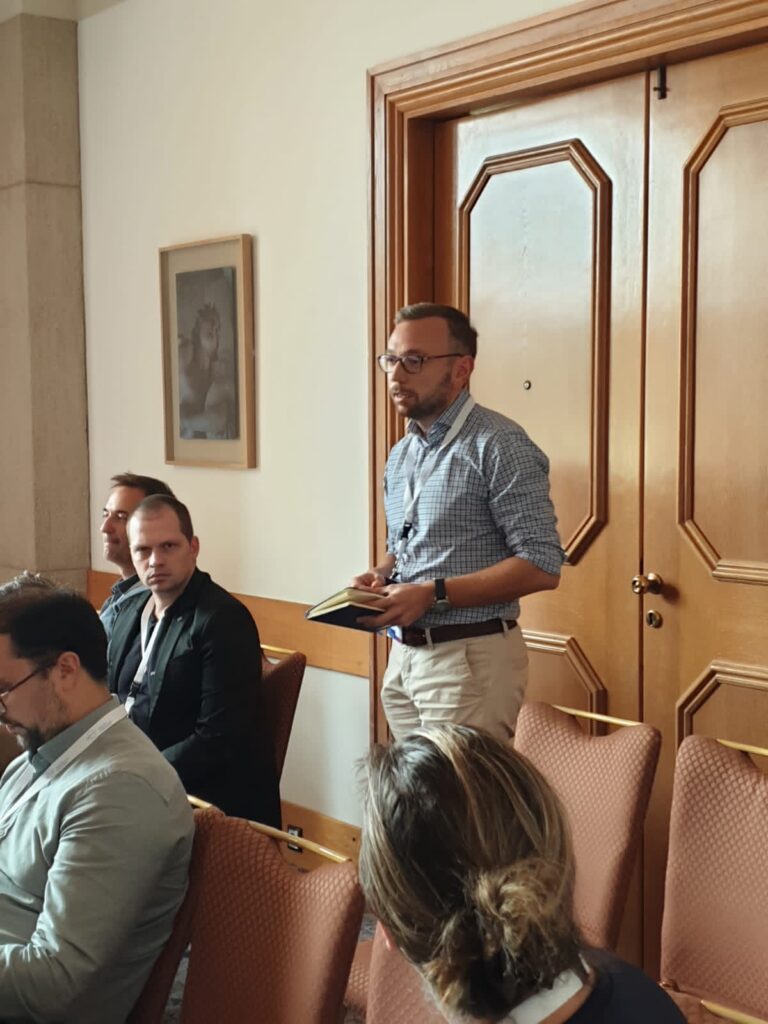
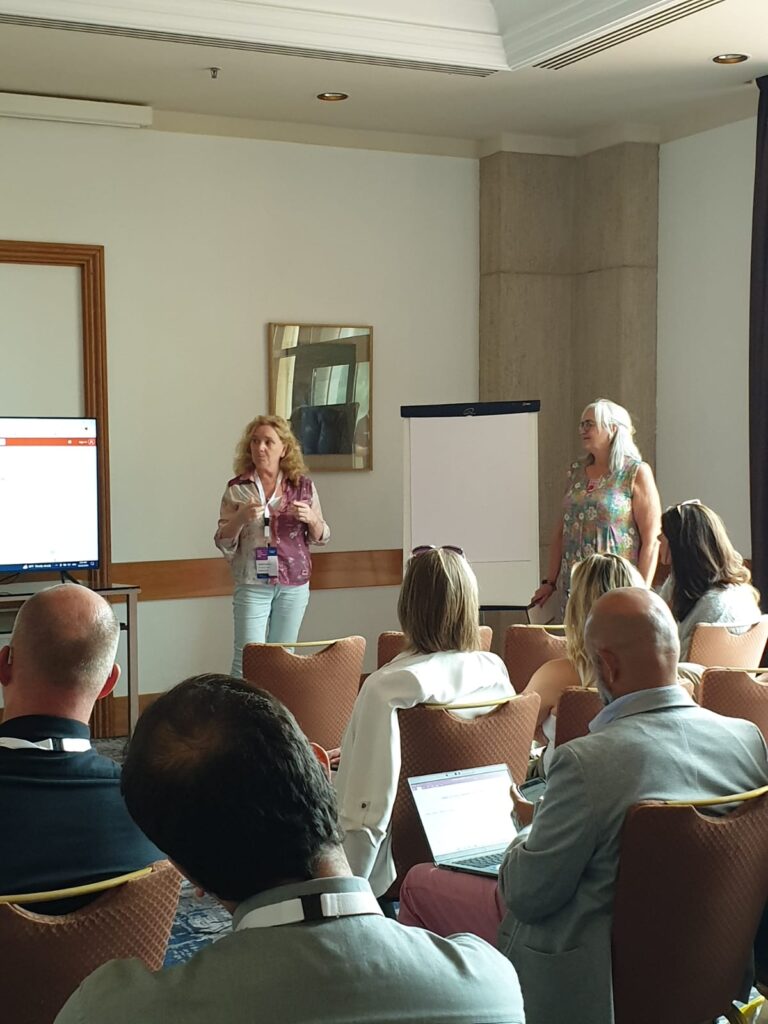
As to the question how the training in green skills can be an integrated part of VET topics, the following suggestions came up:
Regarding the EcoPoints: Motivation is the key: Motivation has a crucial factor in encouraging the wider use of EcoPoints. Motivating users to participate in eco-friendly activities or use the application is essential for its success. Examples of motivation:
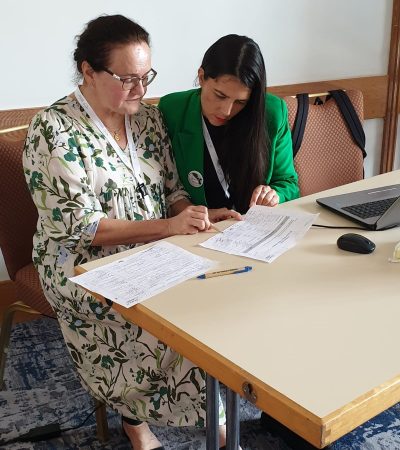
Concluding remarks
This workshop was of great importance for the Western Balkans countries, because the more examples WB countries get, the easier it is to develop a better path for green transition. The outcomes of this workshop can be integrated into the trainings of the WB partners in the project “VET for Western Balkan”. It was of great importance to have a representative from a WB country involved in this whole event, because these countries do need help, especially when it is a matter of green activities. We hope more of them will attend the future events.

Lets VET together May 28, 2024| Podgorica, Montenegro The “Let’s VET Together” Conference was held on May 28, 2024, at the Hilton Hotel in Podgorica,
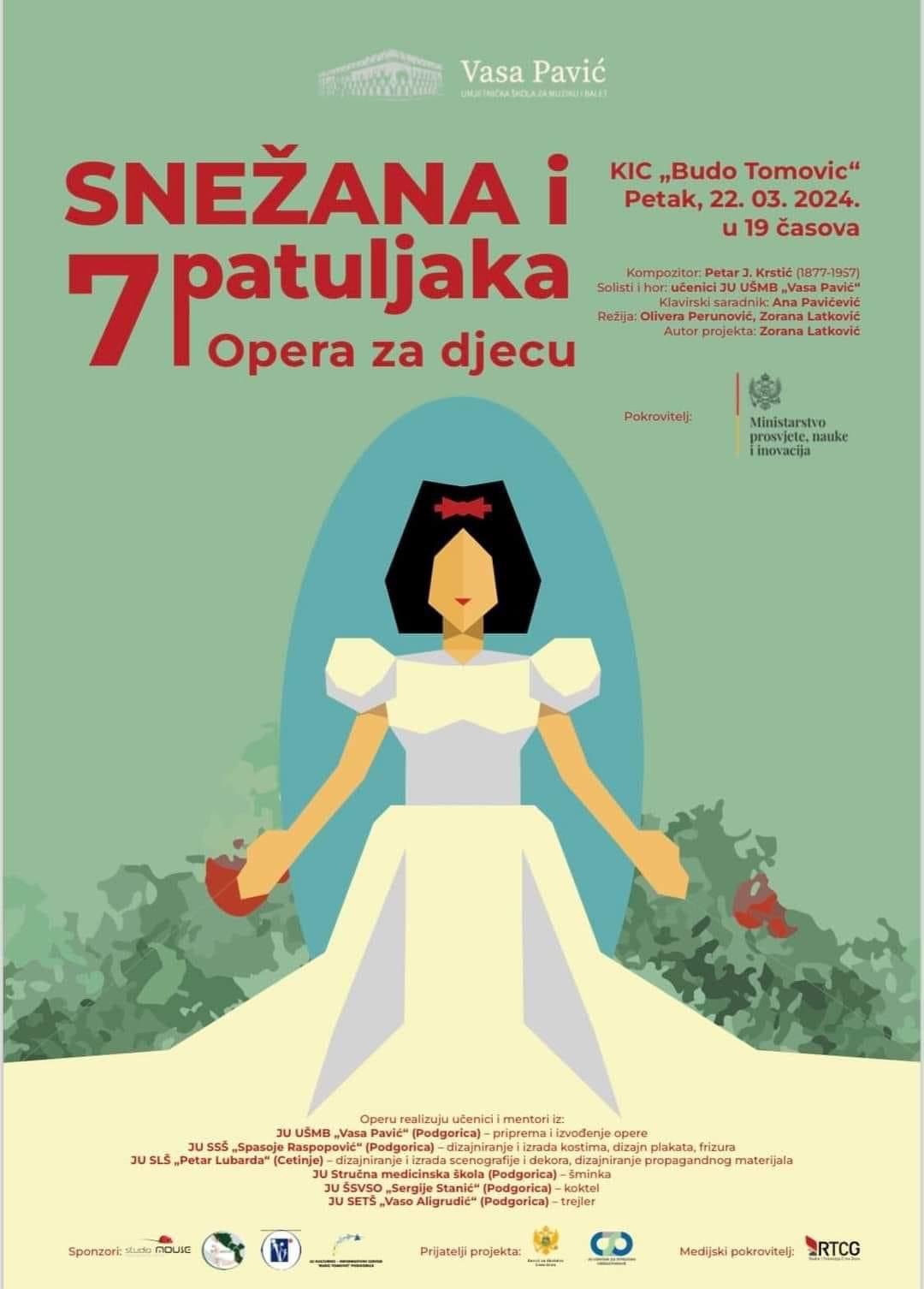
Opera for children “Snow White and the Seven Dwarfs” March 22, 2024| Podgorica, Montenegro The first opera for children “Snow White and the Seven Dwarfs”